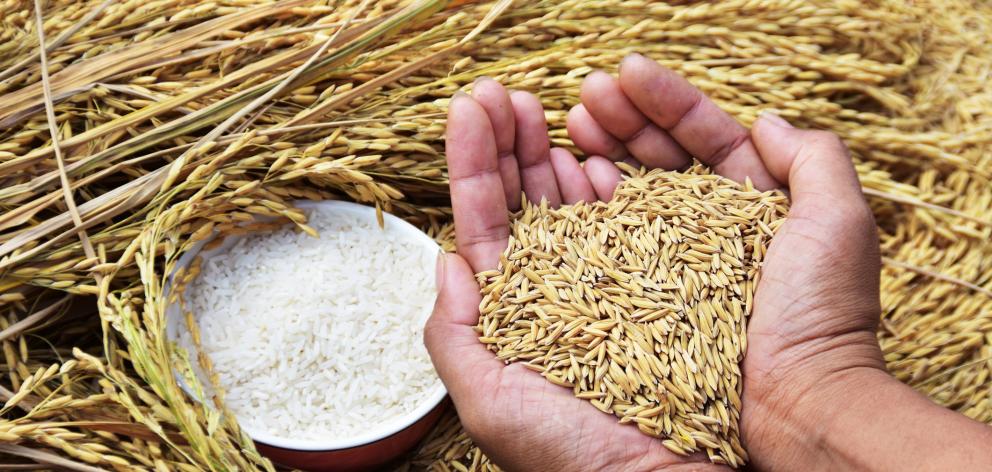

He is director of the Healthier Lives National Science Challenge, a research collaboration dedicated to achieving healthier lives for New Zealanders, and a member of the World Health Organisation expert advisory panel on nutrition.
However, what is important is not a low carbohydrate diet but the type of carbohydrates you eat, Prof Mann says.
Beneficial types are minimally refined whole grains, as well as legumes such as lentils, peas and beans, and non-starchy vegetables.

The carbohydrates to avoid are highly refined or processed, such as white flour and sugar. This was one of the topics presented at a World Diabetes Day event at the Mayfair Theatre in South Dunedin yesterday.
"There is an enormous amount of evidence showing that whole grains are beneficial, not just for diabetes but for heart disease and cancer - it's extraordinary the benefits of whole grains, but the really interesting thing is it's all based on quite old data and in those days wholegrain was probably very different,'' he explains.
As food manufacturers change their processes and products, new research needs to be done to see if there are any health-related consequences as many wholegrain products are now highly processed.
Most definitions of wholegrain require most of the bran, germ and endosperm to be added back to the refined flour so the nutrient content may be the same as a product that has been minimally processed, but nobody has shown that the health benefits are the same, he said.
Similarly, it is not certain whether added fibre, which is found in many products that claim to be high in fibre, has the same benefits as the natural fibre in a whole food such as whole grains, he said.
Added fibre can be synthetic and made in the laboratory, or extracted from plant material such as chicory root, onion skins, corn husks, bran, soy, sugarcane waste, or cotton.
"While there is some evidence that synthetic fibre might lower cholesterol or have some effect on blood glucose, heaven only knows what the long-term health consequences are of that. Is it the same as natural fibre in a whole food? It may be but we don't know,'' Prof Mann said.

However, a new research project led by Dr Lisa Te Morenga, senior research fellow in the human nutrition department, and Dr Andrew Reynolds, hopes to establish whether the types of processing done to whole grains influences the health benefits of those products.
Food processors are always looking for more efficient processes and ways to make their products more palatable.
Some products claim to be wholegrain or wholemeal but look very processed and not particularly healthy, such as certain breakfast cereals and breads, she said.
"We are doing a series of quite simple experiments looking at modifying the structure of grains, comparing finely ground, milled-up grains with intact grains in products that use four different major types of food processing,'' she explained.
Collaborating with the food science department, she and her colleagues are looking at cereals which involve hot and cold gelatinisation processes, crackers that use dry heat melting, and breads that involve fermentation and dry heat with a wet dough, which are fairly standard processes.
There will be in-vitro and in-vivo studies to compare how they affect factors such as long-term glucose control, lipids, blood pressure, weight and the microbiome, in people both with and without diabetes, she said.
The research is funded by Riddet CoRE, the Otago Southland Diabetes Research Trust and the Baking Industry and Flour Millers Research Trusts.
However, until the research is completed, she is concerned to give practical advice about how to eat healthily and inexpensively.
While many people know to avoid processed foods, they don't always understand what "processed'' means.
She tells a story of someone who said they used to eat porridge for breakfast but thought it was processed and swapped to eggs and bacon.
But bacon is actually a processed meat with high levels of saturated fat, sodium and cholesterol, and, like other processed meats has been linked to cancer, whereas porridge oats, unless they are instant, are not normally highly processed and are relatively wholegrain.
Oats contain beta-glucan which boosts heart health and may help reduce the risk of type 2 diabetes and stimulate the immune system.
"I think the greatest benefit for New Zealand consumers, especially low-income consumers, would be to include more intact grains and legumes. They don't need to go and find fancy ones like quinoa,'' Te Morenga said.
Adding a can of chickpeas or beans to mince or stew is an easy and inexpensive way to eat more good carbohydrates, and it makes the stew go further.
When choosing bread she suggests looking for more than 5g of dietary fibre per 100g as well as having wholewheat or wholegrain flour as one of the first ingredients.
"That's a good rule of thumb, and if you can see bits in it all the better, but it can be hard to tell through the plastic bag.''
However, a lot of grainy breads today are basically white with some grains or seeds thrown in. Even breads that look brown can be coloured with molasses, Prof Mann warns.
Whatever colour it is, if it is light and soft and flaps when you wave a slice, it's probably not such good bread.
"I don't have any real scientific grounds for saying that. But the high-fibre breads on the whole don't flap,'' he said.
Comments
"But bacon is actually a processed meat with high levels of saturated fat, sodium and cholesterol, and, like other processed meats has been linked to cancer"
Firstly, bacon has not been linked to cancer; there is very little prospective epidemiology of bacon but what there is does not show the associations with cancer seen with processed meats in general. Most processed meats are finely ground and many are precooked, which isn't the case with bacon. In animal experiments, bacon seems to prevent cancer.
Secondly, only 33% of the fat in bacon is saturated, 66% is unsaturated. This is the same as chicken fat.
Thirdly, the cholesterol content of food is neither here nor there, as the persons at highest risk of coronary events have the poorest absorption of dietary cholesterol, and are instead high cholesterol synthesisers due to excess insulin. Thus even if the person mentioned wanted to avoid bacon for some reason, they could still enjoy eggs, which will supply more protein, more unsaturated fat, and a wider range of vitamins than oats.
Whole grains may look good compared with refined grains, but in Paleolithic diet trials total grain avoidance is associated with benefit.













